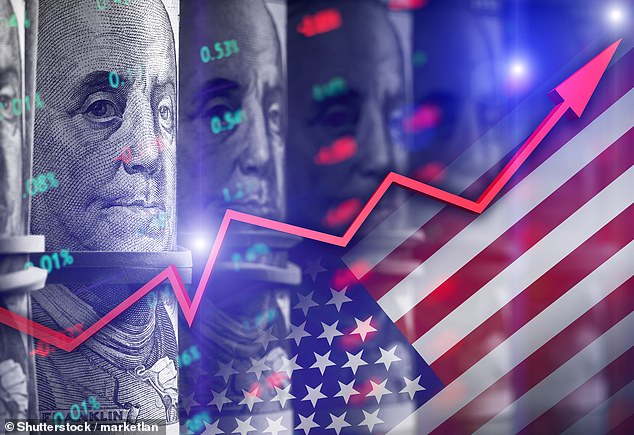The US economy grew at its fastest pace in nearly two years in the third quarter – sparking concerns that the Federal Reserve may need to hike interest rates again.
Gross domestic product grew 4.9 per cent as higher wages drove consumer spending, ahead of analyst expectations of 4.3 per cent growth.
It came as European Central Bank held interest rates yesterday at 4 per cent in the eurozone, a sign that its aggressive rises have started to bring down prices. It had raised the rate 10 times in a row.
Inflation has almost halved from its peak, although it remains above the 2 per cent target at 4.3 per cent.
The Bank of England is expected to hold rates when its monetary policy committee meets next week. Inflation is currently 6.7 per cent.

Gathering pace: Gross domestic product grew 4.9 per cent as higher wages drove consumer spending, ahead of analyst expectations of 4.3 per cent growth
The pound briefly fell to a three-week low against the dollar yesterday as traders bet that the central bank will leave interest rates unchanged next Thursday.
Meanwhile, the Confederation of British Industry (CBI) released data showing that British retailers suffered their worst October in six years as consumers slow spending amid the cost-of-living crisis.
The monthly retail sales balance fell to -36 in the year to this month. It was -14 in the year to September. The High Street is braced for further pain as sales are expected to fall again next month ahead of the crucial Christmas period.
CBI economist Martin Sartorius said: ‘Retail remains in a perilous position. While slowing inflation should help bolster households’ income, retailers will continue to face headwinds from higher energy and borrowing costs.’



